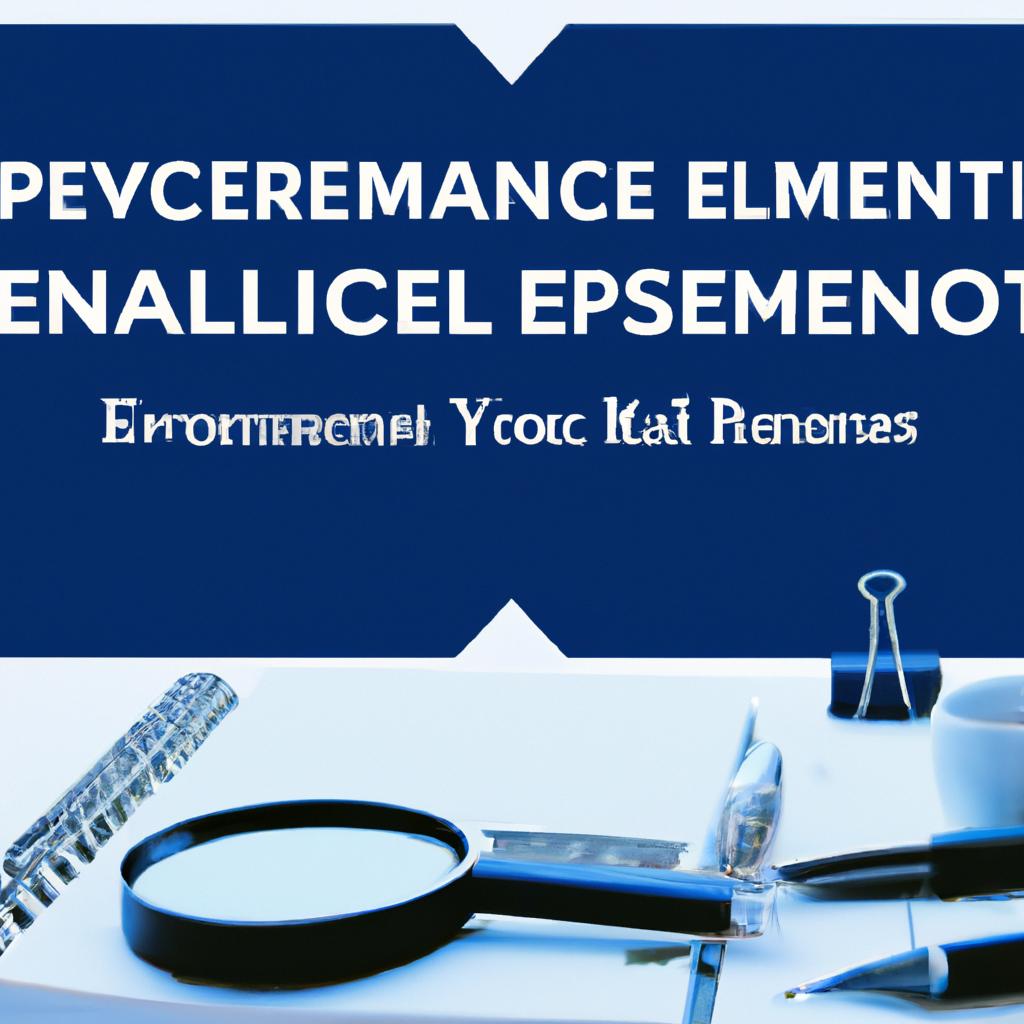While the subject of estate planning may not be the most exciting, it is a crucial aspect of ensuring your assets are safeguarded and allocated according to your desires after your demise. To plan effectively for the future, there are five key documents you should have in place. These documents, ranging from wills to power of attorney, play a pivotal role in estate planning. Let’s delve into the significance of each document and why they are vital for preserving your legacy.
Vital Documents for Efficient Estate Planning
Securing Your Assets: Required Paperwork for Estate Planning
In order to effectively protect your assets through estate planning, there are five key documents that you need to have in place. These documents are vital for ensuring that your wishes are executed and your loved ones are cared for in the event of your demise.
A critical document is a Final Will and Testament, which details how you want your assets to be allocated after your death. This document allows you to specify who will inherit your property, money, and other possessions. Without a will, your estate may be subject to intestacy laws, which could result in your assets being allocated in a way that you did not intend.
Another significant document is a Revocable Living Trust, which can help you avoid the lengthy and expensive probate process. By transferring your assets to a trust, you can ensure that they are allocated according to your wishes without the need for court intervention. Additionally, a trust provides greater privacy for your estate and allows for a smoother transition of assets to your beneficiaries.
You will also need to have a Durable Power of Attorney in place, which designates someone to make financial decisions on your behalf if you become incapacitated. This document ensures that your bills are paid, investments are managed, and other financial matters are handled in the event that you are unable to do so yourself. Additionally, a Healthcare Power of Attorney appoints someone to make medical decisions on your behalf if you are unable to do so. This document ensures that your healthcare preferences are followed and that your medical treatment aligns with your wishes.
Honoring Your Wishes: Key Legal Documents for Estate Planning
When it comes to estate planning, having the right legal documents in place is crucial to ensuring your wishes are honored. By preparing these key documents, you can protect your assets, provide for your loved ones, and ensure your affairs are handled according to your wishes.
Below are the 5 essential documents you need for estate planning:
- Will: A will is a legal document that specifies how you want your assets to be distributed after your death. It also allows you to appoint guardians for any minor children.
- Trust: A trust is a legal arrangement that allows a third party, or trustee, to hold assets on behalf of a beneficiary. Trusts can help avoid probate and provide privacy as they are not public record.
- Power of Attorney: A power of attorney grants someone the authority to make legal decisions on your behalf if you become incapacitated.
- Healthcare Directive: A healthcare directive, also known as a living will, outlines your wishes for medical care in the event you are unable to make decisions for yourself.
- Beneficiary Designations: Ensure you have designated beneficiaries for your retirement accounts, life insurance policies, and other assets to ensure they are distributed according to your wishes.
Preserving Your Legacy: Essential Documents for Estate Planning
When it comes to estate planning, having the right documents in place is essential to ensure that your wishes are carried out and your loved ones are cared for. Here are the top 5 documents you need to have in order to safeguard your legacy:
- Will: A will is a legal document that outlines how you want your assets to be distributed after your death. It is important to have a will in place to avoid any confusion or disputes among your heirs.
- Power of Attorney: A power of attorney gives someone the authority to make financial or medical decisions on your behalf if you become incapacitated. It is crucial to have a power of attorney in place to ensure that your affairs are taken care of if you are unable to do so yourself.
- Healthcare Directive: A healthcare directive, also known as a living will, outlines your wishes for medical treatment in case you are unable to communicate them yourself. It is important to have a healthcare directive to ensure that your wishes are respected in a medical emergency.
- Trust: A trust is a legal entity that holds assets on behalf of beneficiaries. Creating a trust can help you avoid probate and provide more control over how your assets are distributed after your death.
- Beneficiary Designations: Ensure to keep your beneficiary designations up to date on your retirement accounts, life insurance policies, and other financial accounts. Beneficiary designations override your will, so it is important to review and update them regularly.
Conclusion
In conclusion, having the right documents in place is crucial for effective estate planning. By ensuring that you have a will, healthcare directive, power of attorney, trust, and beneficiary designations in order, you can have peace of mind knowing that your wishes will be carried out and your loved ones provided for. Take the time to get these documents in order and consult with a professional to ensure that your estate plan is comprehensive and meets your specific needs. Planning for the future is not just about securing your assets, but also about preserving your legacy for future generations. So, don’t delay – start your estate planning journey today.
 When it comes to estate planning, having the right documents in place is crucial to ensure that your wishes are carried out effectively and efficiently. Planning for the distribution of your assets and the care of your loved ones after you pass away is a complex process that requires careful consideration and attention to detail. In this article, we will discuss the essential documents you absolutely need for effective estate planning, along with some practical tips and benefits of having a solid estate plan in place.
When it comes to estate planning, having the right documents in place is crucial to ensure that your wishes are carried out effectively and efficiently. Planning for the distribution of your assets and the care of your loved ones after you pass away is a complex process that requires careful consideration and attention to detail. In this article, we will discuss the essential documents you absolutely need for effective estate planning, along with some practical tips and benefits of having a solid estate plan in place.
**Last Will and Testament**
A Last Will and Testament is one of the most important documents in estate planning. This legal document allows you to specify how you want your assets to be distributed after your death. In your will, you can designate beneficiaries, appoint an executor to handle your estate, and even outline specific funeral arrangements. Without a will, your assets will be distributed according to state laws, which may not align with your wishes.
**Revocable Living Trust**
A revocable living trust is another valuable tool in estate planning, especially for individuals with significant assets or complex family situations. A living trust allows you to transfer ownership of your assets to a trust during your lifetime, which can help avoid the costly and time-consuming probate process. With a living trust, you can also designate a trustee to manage your assets if you become incapacitated, providing added protection and flexibility.
**Financial Power of Attorney**
A financial power of attorney is a legal document that designates a trusted individual to make financial decisions on your behalf if you become unable to do so yourself. This document is essential for ensuring that your finances are managed properly in case of incapacity or illness, allowing your designated agent to pay bills, manage investments, and handle other financial matters on your behalf.
**Healthcare Power of Attorney**
Similar to a financial power of attorney, a healthcare power of attorney appoints a trusted individual to make medical decisions on your behalf if you are unable to do so. This document ensures that your wishes regarding medical treatment and end-of-life care are followed, giving you peace of mind that your healthcare decisions will be made by someone you trust.
**Beneficiary Designations**
In addition to the above documents, it’s important to review and update beneficiary designations on accounts such as retirement plans, life insurance policies, and investment accounts. Designating beneficiaries on these accounts ensures that your assets will pass directly to your chosen beneficiaries outside of the probate process.
**Practical Tips for Effective Estate Planning**
– Start early: It’s never too early to start the estate planning process. The earlier you begin, the more time you have to carefully consider your wishes and make informed decisions.
– Review and update regularly: Life changes such as marriage, divorce, the birth of a child, or the acquisition of new assets may necessitate updates to your estate plan. Reviewing your plan on a regular basis ensures that it remains up to date.
– Consult with professionals: Working with estate planning attorneys, financial advisors, and other professionals can help ensure that your estate plan is comprehensive and tailored to your specific needs and goals.
**Benefits of Effective Estate Planning**
– Protecting your assets: Proper estate planning can help protect your assets from unnecessary taxes, creditors, and other potential threats.
– Providing for your loved ones: A well-crafted estate plan ensures that your loved ones are taken care of according to your wishes, avoiding disputes and confusion.
– Peace of mind: Knowing that your affairs are in order and your loved ones are provided for can bring peace of mind and alleviate stress.
In conclusion, having the essential documents in place for effective estate planning is essential for ensuring that your wishes are carried out and your loved ones are provided for after you pass away. By creating a comprehensive estate plan that includes a will, trust, powers of attorney, and beneficiary designations, you can protect your assets and legacy while providing for your loved ones in the future. Start the estate planning process early, review and update your plan regularly, and seek professional advice to ensure that your estate plan meets your needs and goals.


